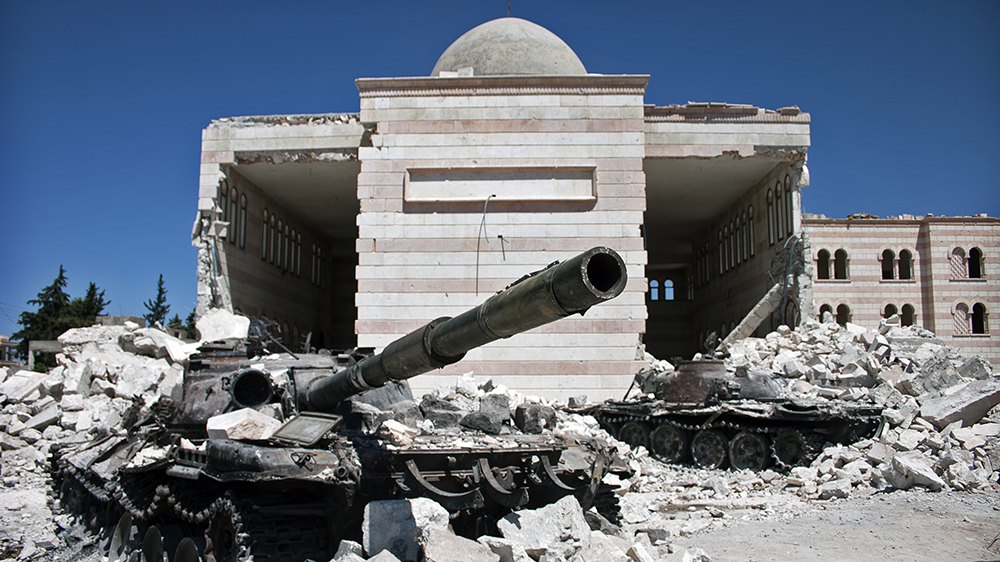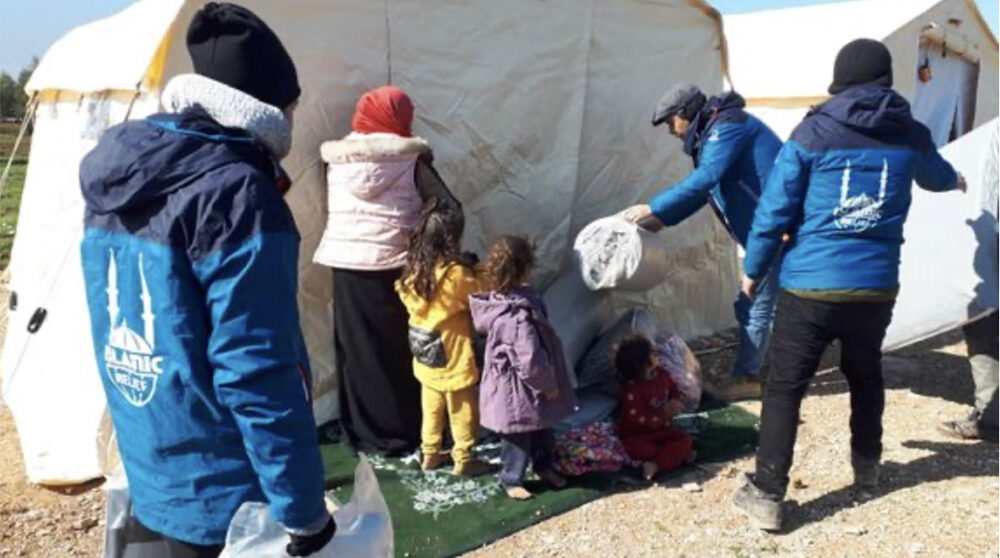The war in Syria has entered its tenth year and there is no solution in sight. Since fighting started in 2011, almost half of the country´s pre-war population has been displaced. The war has killed more than 500,000 people and displaced 11.7 million and whole cities have been destroyed. A political solution needs to include amendments of the Constitution, elections held under UN auspices, and implementation of UN Security Council resolutions on ceasing violence writes Tomas Nordberg in this analysis.
The war in Syria has entered its tenth year. There is a need for accountability, a sustainable solution to the conflict, and access for humanitarian aid. United Nations Security Council Resolution 2254 from 2015 called for a peaceful transfer of power in Syria. And a 2016 United Nations General Assembly Resolution, supported by 122 countries, called for an end to the fighting and immediate humanitarian access for all Syrians. The Organisation for the Prohibition of Chemical Weapons (OPCW) is working on accountability for those who have committed offences and it works through the Commission for International Justice and Accountability and the International Impartial and Independent Mechanism. And the United States passed the Ceasar Syria Civilian Protection Act in June, which makes it illegal under US law for any country, individual or entity to engage in business with the Assad government. But the coordinated response through the United Nations Security Council is hampered by the veto power and Russia and China´s insistence that President Assad should stay in power.
Slim prospects for negotiations
The international involvement in the conflict is multifaceted and complex. Turkey, for example, supports armed groups that control Idlib due to a pact with Russia from 2018. The involvement of external actors has protracted the war and the prospects for a negotiated agreement are slim. At the same time, a diplomatic solution is badly needed, more specifically, a political settlement based on UNSC Resolution 2254. In addition, impunity for war crimes must not be allowed. The Assad regime is employing the issues of terrorism and refugees as leverage to achieve international impunity for its crimes against humanity. The International, Impartial and Independent Mechanism on International Crimes committed in the Syrian Arab Republic, brought into being by the UN General Assembly in 2016 is collecting the proof needed to put the perpetrators of war crimes under trial. This mechanism smooths the way for enquiries through maintaining evidence and distributing expert data. Syrian NGOs are also gathering evidence.
The International Partnership against Impunity for the Use of Chemical Weapons was founded in January 2018 and comprises over 40 states and the EU. It shall play a vital role in laying the groundwork for establishing liability of those responsible for chemical weapons attacks during the war. Most fundamentally, the peace negotiations in Geneva should be restarted, under the leadership of Special Envoy of the Secretary-General for Syria. The terms of a lasting solution to the crisis need to be clarified under a negotiated process.
The conflict has been prolonged and worsened by the involvement of external actors. In 2015, Iran and Russia assisted the Syrian government in defeating rebel forces and jihadist fighters or forced them to seek refuge in Idlib in the north-west of the country, together with three million civilians. The war has killed more than 500,000 people and displaced 11.7 million and whole cities have been destroyed. While the fighting has subsided substantially, it continues in Idlib and in other areas not under the control of the government. The government has used the tactic of surrender agreements and regime change is very unlikely.
New definition of transitional justice
In the US, the adoption of the Syrian War Crimes Accountability Act and the Elie Wiesel Genocide and Atrocities Prevention Act has reshaped the definition of transitional justice under US law. The practical impact of this legislation remains to be seen.. The consequences of the war are devastating. Since fighting started in 2011, almost half of the country´s pre-war population has been displaced. The Syrian government has violated UN Security Council Resolution 2118 and the Chemical Weapons Convention by using chemical weapons. And the 2013 Geneva agreement on the elimination of Syrian chemical weapons has been violated by Russia.
A political solution should include amendments of the Constitution, elections held under UN auspices, and implementation of UN Security Council resolutions on ceasing violence, including in Idlib. While Syria and its allies have effectively won the conflict on the battlefield, the crisis is far from over. Active diplomacy is the key to ending the conflict. Syrian will face new sanctions by the US if it fails to come into compliance with UN Security Council Resolution 2254.
A cease-fire is most urgent. The UN peace negotiations in Geneva are not likely to result in President Assad being removed from power. But the US has at least made funding for reconstruction in Syria conditional on a political settlement being agreed upon in line with Resolution 2254. The sanctions are intended to put pressure on the regime to concur with a political solution. The Syrian leadership has agreed to dismantle its chemical weapons. And Russia has pronounced that it is in favor of a political deal to end the conflict and it needs the US, the EU and other states to sign such a pact. Confidence-building measures should be agreed upon such as a cease-fire, releasing prisoners and strengthening access to foreign aid.
The so-called Syrian Constitutional Committee aims for a new Constitution and elections under the United Nations. The principal parties to the conflict are engaged in negotiations on these issues in Geneva. UN Special Envoy for Syria Geir Pedersen stated regarding the latest round of talks: “Obviously, there are still very strong disagreements, and my Syrian friends are, of course, never afraid of expressing those disagreements,” Pedersen said. “But I was also extremely pleased to hear the two co-chairs saying very clearly that they thought also there were quite a few areas of commonalities.” The parties are to meet again upon agreeing on the agenda for the next meeting.
Tomas Nordberg


